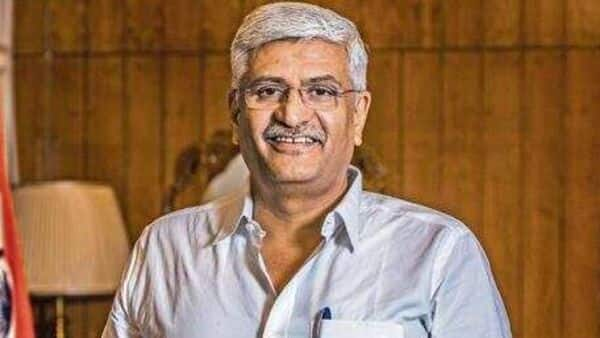‘We are determined to complete Jal Jeevan Mission by end of 2024’
NEW DELHI :
The commodity supercycle has impacted the roll-out of the government’s flagship scheme to connect every household with tap water, the Jal Jeevan Mission. Given that the marquee scheme, to be completed by 2024 holds the key to helping the BJP secure a third consecutive victory in the Lok Sabha polls, a committee has been constituted to find out a solution to restart the stalled work, Jal Shakti minister Gajendra Singh Shekhawat said in an interview. Edited excerpts:
India has witnessed a severe heatwave. In terms of drinking water scarcity, how bad is the situation?
We have witnessed improvements with the Jal Jeevan Mission. The coverage of drinking water at household level has improved from 16% to 49%. Also, 33% of new households have started receiving water, which has helped relieve some pressure. The tap connections under this mission are called Functional Household Tap Connection (FHTC). The functionality means quality water, and quantity means at least 55 litres of water per day per person along with regularity. If the three metrics are met, the connection will be considered functional. Through this scheme we are close to reaching 100% water connections in areas such as Bundelkhand, whose 11 districts used to be extremely water scarce. Similarly in drought prone areas of Telangana, the challenges have been met. States such as Bihar today have more than 95% of households with running tap water. The scheme is under progress and we are determined to complete the project by the end of 2024.
What are the challenges?
The inflation in commodity prices is a huge impediment because it has affected the tenders and ultimately the work. The rise in prices of steel and plastic has affected the costs of pipes, which were previously available at 50% of the current costs. Because of the price rise, the contracts awarded earlier have become unviable for the concessioners. We conducted a meeting to address this issue. While new tenders have been issued, but the projects with old tenders have stopped, which has affected the speed with which the project was progressing. We have constructed a committee to resolve such issues under the chairmanship of the secretary, Jal Shakti and Water Resources. We have also instituted a technical committee where along with the secretary, we have additional secretaries from states, engineering chiefs and concessioners.
Which are the better performing states?
The first state to reach 100% status was Goa, followed by Telangana, and Haryana. Madhya Pradesh, Gujarat, Punjab, are doing exceptionally well. There are 12 states that are moving towards the 100% status.
Three states and three Union Territories have achieved 100% status. Himachal Pradesh, Bihar, Sikkim are above the 90% mark. Maharashtra, Manipur, Arunachal Pradesh, Uttarakhand, Mizoram, Jammu and Kashmir, are between the 60-70% mark.
Which states are lagging?
The work in Uttar Pradesh was delayed as we were stuck in resolving areas like Bundelkhand. The work for the project started in around 2021. We aim to have 80 lakh tap water connection in UP by the end of 2022. But, the most unfortunate state is Rajasthan. We started with 12% water connections but have only managed to reach 23-24%. Progress in the state has been slower compared to the other states.
Which other states are lagging besides UP?
West Bengal, Rajasthan, Jharkhand and Chhattisgarh. These are really critical states which we are worried about.
With JJM being a $50 billion project, will the cost of the project go up?
Not at the moment because the current tenders are based on current costs and I don’t feel this will have a major impact on a project like Jal Jeevan. The price hike is a short-term phenomenon. Even if it does make an impact, the government is committed towards the project. Our current budgetary allocation is Rs3,60,000 crore and we have significant savings as well. So it is not going to impact the speed and the targets of the mission.
What’s the update on the interlinking of rivers programme?
All the statutory clearances for Ken-Betwa are completed. There are two stages for forest and wildlife clearance, of which stage one we have achieved. For stage two, the money that we had to give to MoEF, has been deposited. We will start the tender proceedings as soon as we get the clearances.
For all the latest world News Click Here

